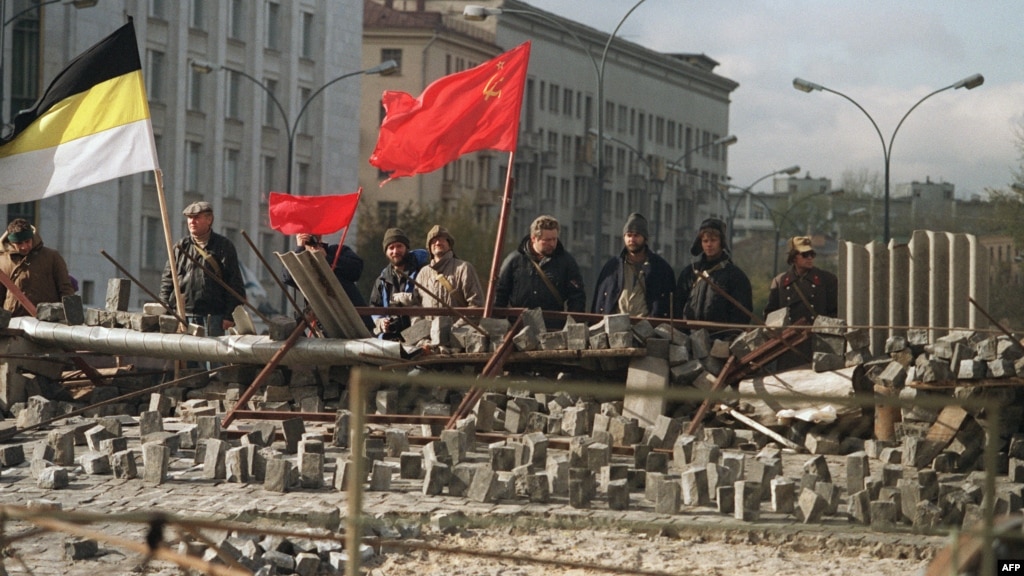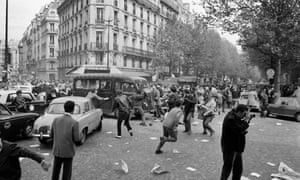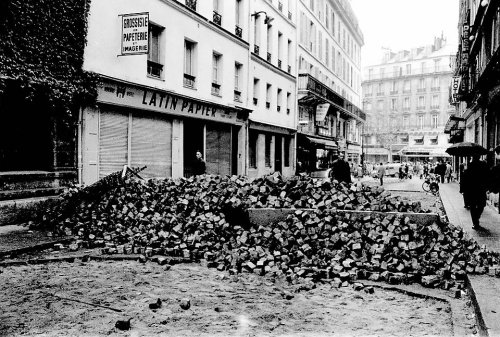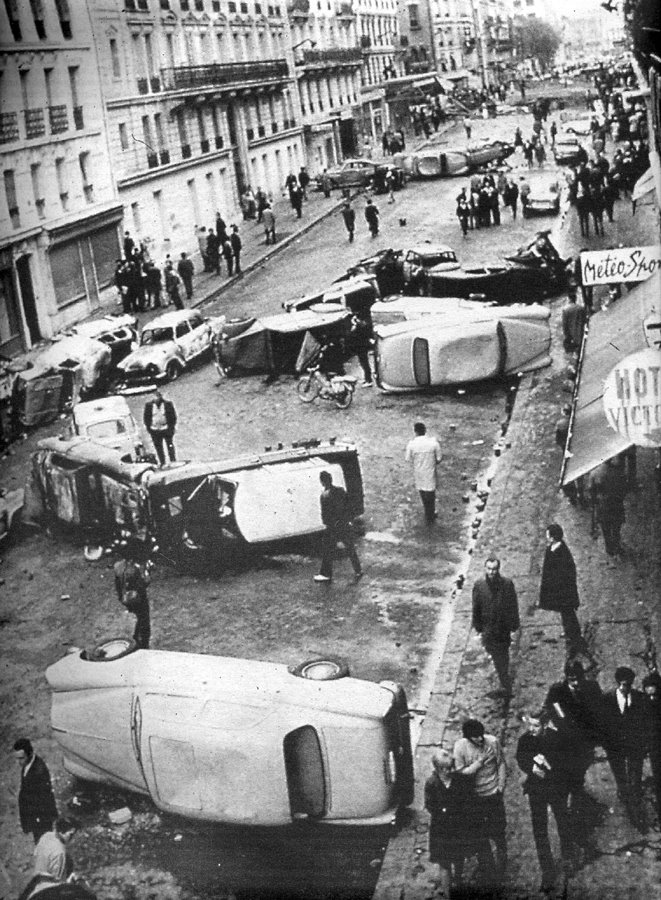How did schoerners policy of conscripting anything with a pulse work out?Schörner’s germany is an utterly failed state likely to collapse at any moment once other power hungry generals attempt to seize power after his death, (Think Goring’s empire except Schorner leaves the economy to economics people) and Diem’s very good ideas have led to Vietnam becoming akin to North Korea.
So very, very poorly for the two of them.
You are using an out of date browser. It may not display this or other websites correctly.
You should upgrade or use an alternative browser.
You should upgrade or use an alternative browser.
Photos of the New Order
- Thread starter xie323
- Start date
-
- Tags
- axis victory dystopia hoi4 tno
How did schoerners policy of conscripting anything with a pulse work out?
Good at first, then once the anarchy period ended, a downward spiral in this made up TL I guess.
“We did it! We beat italy! Now who’s ready for more war- nope, the riots are breaking out oh god”
Oswald Mosley, the former leader of the British fascists and a British exile in Canada, gets teary-eyed while watching the footage of his pre-war speechs at the day when CBC TV announced the victory of Hermann Goering's Operation Sea Lion II against the Kingdom of England. While the disgraced politician has not given any public comments about the event, the famous footage raised many questions from the public about whether if Mosley sincerely felt guilt over originating the Fascist movement in Britain and his past activities against the British involvement in the war against Germany.

The ageing Leon Degrelle, though now a marginalised figure in Burgundy, was often wheeled out to make propaganda broadcasts to the French speaking world on behalf of the Himmler regime. This was primarily to maintain the illusion that Walloons and other French speakers were "Pan-European partners of the Germanic State of Burgundy" and not as they really were, slaves and victims of a genocidal German occupation.
I hear in the German Civil War, Burgandy can send Degrelle to aid Heydrich's Forces.The ageing Leon Degrelle, though now a marginalised figure in Burgundy, was often wheeled out to make propaganda broadcasts to the French speaking world on behalf of the Himmler regime. This was primarily to maintain the illusion that Walloons and other French speakers were "Pan-European partners of the Germanic State of Burgundy" and not as they really were, slaves and victims of a genocidal German occupation.

Dinmukhamed Kunayev, the second General Secretary of the Soviet Union after its official restoration under General Bayurzhan Momyshuly, on the XXI Congress of the Communist Party of the Soviet Union, the first one taken in Moscow after previous two were taken in Alma-Aty. With a notorious presence of the OFN representatives during the Congress, General Secretary Kunayev congratulated his comrades for a successful war against the remnants of the Nazi rule in RK Moskowien and called the foreign countries that are sympathetic to the Soviet cause to stay wary against the fascist menace and preserve the international peace at any cost.
Harry S. Truman giving a speech to his supporters in Hampton, Virginia.
The 1948 American presidential election was the most hotly contested presidential election in American history. The five main candidates were incumbent President Harry S. Truman of the Democratic Party, Thomas E. Dewey of the Republican Party, who had previously ran against Truman in 1944, Henry A. Wallace of the Progressive Party, Richard Russell Jr. of the States' Rights Party, and Earl Browder of the Communist Party.
Harry S. Truman oversaw the American war effort during World War Two, and America's loss in that war greatly harmed his public image. His association with former President Joseph P. Kennedy Sr., who many blamed for America's lack of readiness for the conflict, didn't help matters either. Despite this, some believed that Truman stood a chance, and this would later lead to the infamous "Truman Defeats Dewey" headline from the Chicago Daily Tribune, which was held up by Dewey following his victory in the election. Truman was the last presidential candidate of the Democrats, as the party would decline greatly in the years following this election.
A colorized photo of Dewey giving a speech during his campaign tour in California.
During his presidential run, Dewey aggressively criticized Truman's poor handling of the war effort, and made foreign policy one of the primary issues of his campaign. He railed against the signing of the Akagi Accords and believed that America must have a stronger role in the international stage in order to fight off the influence of Germany and Japan. Dewey's message hit home to many Americans, including returning WW2 veterans who were bitter over America's loss in the war. This is seen as one of the main factors in Dewey's victory. Ironically, Dewey and Truman would later be two of the main people responsible for the merging of the Democratic and Republican Parties following this election, as both men believed this could ensure future stability for the United States.
A gathering of Henry Wallace's supporters during the 1948 Progressive Party Convention.
Henry Wallace, a known progressive political figure from Iowa, rose to prominence as the newly-founded Progressive Party's presidential candidate. Like Dewey, Wallace called for a more interventionist foreign policy against Germany and Japan, whom he called "the greatest evils that taint God's earth" during one of his speeches, but would also advocate for an end to Jim Crow in the South, major economic reform in the US, agricultural reform, and aid to the Russian people. While he did attract many black voters with his pro-civil rights stance, he was considered too radical to many in the government and rumors of communist sympathies in Wallace's inner circle alienated many voters in the North and Mid-West. The Progressive Party would later reform into the National Progressive Front, which ran Wallace's running mate, Glen H. Taylor, as their candidate in the 1952 election, where they performed slightly better. Later on, the National Progressive Front would become the center-left wing of the NPP, and Wallace became one of the party’s significant leftist figures.
Richard Russell Jr. standing alongside his supporters in Mississippi.
After Truman decided to desegregate the US military during WW2, many Southern Democrats abandoned the party and established a political party of their own, known as the States' Rights Party. Their chosen candidate was Richard Russell Jr., the Senator of Georgia. Though Russell would find much support in the Deep South, the party's support of segregation alienated other voters, and Russell would find little support in other areas of the country. This was the only presidential election the States' Rights party participated in, as the party would later merge with Patton's Patriotic Party, who ran the as their presidential candidate in 1952, where their focus on revanchism earned them the Pacific states in that election.
Earl Browder accepting the Communist Party's nomination for the presidential race.
Originally, many in the Communist Party wanted to endorse Henry Wallace in this election, but others saw Wallace as too moderate and hoped to preserve the socialist cause after the collapse of the Soviet Union in the 40s. Earl Browder, who had previously been the party's candidate in the 1940 election, was chosen once more as the party's presidential candidate. Browder did perform significantly better than previous candidates of the Communist Party, winning the states of Oklahoma and Kansas, despite 3 Oklahoma electors and 6 Kansas electors choosing to support Dewey. Aside from that, Browder found little support anywhere else, as many Americans found little interest in communism. After 1948, the Communist Party once again fell into political obscurity, and they wouldn't run a candidate in the next election, deciding instead to endorse Glen H. Taylor's presidential campaign. Many members of the Communist Party would later defect to the NPP, where they would make up much of the party’s far-left wing.
Last edited:

When an alliance of Aryan Brotherhood and Russian Liberation Army forces entered Moscow, they expected to be welcomed as liberators and thus eagerly allowed the world media into the city for propaganda to use in their war against the other Warlord States. Many Western journalists had never seen occupied Moscow before in their lives flocked to "witness history," just as the Russo-Fascists had hoped. However, merely being Russian would not endear them to the native Muscovite resistance, who largely supported either General Momyshuly's Soviets or the nearby monarchist and Orthodox fundamentalist alliance.

Moscow's supposed native liberators soon found themselves opposed by an unlikely coming together of the cities divided populace. Even many German colonists joined the barricades to ensure that Fascism, even if it be Russian Fascism, never ruled in Russia's old capital again.

Stunned Russo-Fascist security forces soon found themselves confronted by mass demonstrations that quickly turned into riots, and riots that quickly turned into open armed resistance.

Already militant and empowered by their experience of German withdrawal, the Muscovites refused to hand over the government buildings and armed they had seized to the "new government", despite the fact the last Reichskomissar of Moscow had been strong-armed into signing a "treaty of surrender" to the Russo-Fascists that supposedly made the transfer of power legal.

What was supposed to be a victory parade that would legitimise their claims to being Russia's sole legal government soon turned into a war zone, and the Russo-Fascists fought the only way they knew how, with brutality and desperation.

The ultimate result was that a massacre occurred in full sight of the world media. Speer's Germany, who had been tacitly grooming Russia's native Fascists as a more legitimate alternative to the troublesome, disloyal and extremely expensive Reichskomissariat government that was a continuous source of bad press, was compelled to suddenly side with the rest of the KN Council in condemning the RLA and Aryan Brotherhood's invasion of Muscovy. Though they stubbornly refused to leave the city, the withdrawal of German armed support meant it was the beginning of the end for Speer's Russian proxies.
Last edited:

The Adventures of Tintin were originally written up by Belgian writer Georges Remi, who fled to America near the end of the Second World War and continued writing there, as the character began to take shape. Tintin, a Belgian immigrant and American reporter would travel the world exposing atrocities, stopping crime syndicates, and going through adventures with his dog, Snowy. But the pair would not be alone, joined by Royal Navy Veteran Captain Haddock, the hearing impaired Professor Calculus, Thompson and Thompson the bumbling OFN investigators, and Bianca Castafiore the opera singer.
Tintin fever hit America in the 1950s, and was popular for the next three decades, despite the age of Superheroes overshadowing him in sales. By 2007, a century after Hergé's birth in 1907, Tintin had been published in more than 70 languages with sales of more than 200 million copies, and had been adapted for radio, television, theatre, and film. With fourteen animated films, three plays, 30 issues, and a radio show that lasted three years, Tintin would become an American staple.
A scene from the unaired final episode of the 1973 Japanese-American superhero show Danger Warrior (ハザード兵士 Hazādo Senshi).
A joint production between MGM and Toei Studios, the show was produced in a an effort to strengthen Japanese-American entertainment ties following the 1972 Japanese-American detente. The show's story followed the adventures of American Max Power and Japanese Hideki Kobayashi who, during a geological excavation in Hawaii, uncover the eponymous Danger Warrior beneath a volcano. Controlling the robot together, the pair travel the globe preventing the Nazi-Sagittarian empire from taking over the world.
While initially popular outside of Hawaii and California, the show was canceled just 6 episodes into its planned 51 episode run. The reveal of the 731 report and news of the death of American missionaries in China at the hands of Japanese Buddhists led to a swift rejection of the Japanese-American detente. The tapes of the remaining 43 episodes were sent back to Toei Studios in Tokyo by MGM and all future joint projects were cancelled. The tapes were presumed destroyed during the 1982 JRA Tokyo Firebombings. However, a few episodes were discovered in a Chinese Toei warehouse in 2006. The remaining 30 episodes, including the series finale, are considered lost.
Last edited:

The 1970s were the age of superheroes, and even Japan was beginning to catch superhero fever. However, there were very few superheroes Japan could import due to the Cold War. The Avengers were in direct competition with Japanese superheroes in most media (Power Rangers VS Avengers animation would continue for two decades, as would Zaku vs Transformers), the X Men were also fighting Japanese and Nazis from the occasional time to time, and most DC characters were purely American.
Enter Marvel’s friendly neighborhood Spider-Man, a teenager who just swung around, fought crime, and taught that with great power came great responsibility. Japanese liberals had finally found their poster boy superhero that more popular parties could tolerate, and after months of haggling with Marvel, the live action film Spider-Man: Web of Danger came into being. The film was a huge hit within the Sphere, and Japan found themself with a case of Spider-Man fever.

Cybermen take to the streets of London in DOCTOR WHO: Age of Metal. The second film of the Doctor Who film franchise made in Collaborator England, this one would receive rave reviews across the Pakt with Martin Bormann himself stating that in his own opinion the evils of the Cybermen were equivalent to communism. (He equated the Daleks themselves from the first film to his past rival’s forces, led by Hermann Göring.)
With Doctor Who being one of the few shows with a looser amount of censorship in the Pakt, it became popular rather quickly as a result. (Though German media outlets continued to claim their own works had higher ratings.)
Henry A. Wallace speaking at a high school reunion in the early 1960s, hoping to gain more support for the NPP amongst his former peers.
Henry Wallace began to rise in Iowa politics with his commentary on American agriculture through his family newspapers, especially during the Great Depression. He was considered as a possible candidate for Secretary of Agriculture during Joseph Kennedy's presidential campaign, but Kennedy considered Wallace to be too radical, despite his knowledge on agriculture and the need for reform in that sector. Because of Kennedy's disinterest in the agricultural sector, American agriculture remained stagnant throughout Kennedy's presidency, and things would only improve during the Truman and Dewey presidencies.
Wallace giving a speech in Tennessee. A unique aspect of Wallace's presidential campaign was his refusal to travel to segregated areas of the South, instead only campaigning in integrated areas. Many didn't take kindly to this, and this would lead to many eggs being thrown at Wallace during his campaign trips to the South.
Feeling that both parties had abandoned the farmers and working class, Wallace and his friend, Senator of Iowa Glen H. Taylor, formed the National Progressive Front. The party gained much support from many left-leaning political figures such as Florida Senator Claude Pepper, anti-fascist and Spanish Civil War veteran Paul Robeson, and many others who felt that Kennedy's New Deal didn’t do enough to alleviate the economic depression. Though Wallace's acceptance of communist support was controversial, it didn't do much to harm his campaign as fascism was considered far more dangerous than communism, and even then, a majority of communists supported Earl Browder's campaign over Wallace's anyway.
Though Wallace didn't win the election, his campaign cemented the NPF's place in American politics. He would support future candidates of his party, and, suprisingly, would later help negotiate the merging of the NPF with the Patriotic Party, despite his well-known pro-civil rights stance and progressive beliefs.
Henry Wallace in 1956. Despite his increasing age, he remained a prominent figure on the American Left even all the way into the 60s.
As the years went on, however, Wallace and his progressives would become increasingly marginalized by the far-right faction of the NPP. Despite this, he still stayed with the party, as he believed that leaving it would be a capitulation to the segregationists and Yockeys. The passing of the Civil Rights Act of 1965 would be a deciding factor of the dominant faction in the NPP. Suddenly, the influence of the segregationists increased exponentially and this was fully shown when passionate segregationist George Wallace emerged as the NPP presidential candidate in the 1964 election.
This was ultimately the straw that broke the camel's back. Wallace left the NPP and publicly disowned the party at a press conference. He then endorsed Republican-Democrat candidate Wallace Bennett urged his supporters to vote for Bennett to stop George Wallace from winning the White House. Though Henry's endorsement would help the R-D candidate win the states of Iowa, Wisconsin, and Minnesota, it did little to stop George's upset victory in the election.
Following this, an embittered Henry would announce his retirement from politics and he would spend the remainder of his life in his home state of Iowa with his family. He died on November 18th, 1965.
Despite his declaration that the NPP had been consumed by the segregationists, this would prove to be untrue, as the impeachment of Wallace and the disastrous LeMay presidency would force the NPP to abandon their segregationist faction and strengthen their Center faction, led by Michael Harrington.
Last edited:

The Fourteen Words is a 1964 German Romantic Comedy film directed by Paul May and starring Gert Fröbe, Joachim Hansen and Christine Kaufmann. Down on his luck poet Emmanuel falls head over heels in love with the fair maiden Frida who he attempts to court with the creation of a perfect love poem. The finale of the film sees Emmanuel craft the eponymous fourteen words which sees Frida fall in love with him.
Produced in Germania during the German Civil War, The Fourteen Words is notable for being the first German produced film to be filmed primarily for english speaking countries. The Germanian economic situation during the civil war was precarious, as Spidel's government had little territory to draw revenue from. In order to remedy the capital issues facing Germania, the city leaned on it's preexisting international ties. Through embassies and shell corporations the Germanian government would attempt to sell films to the United States and Canada. The Fourteen Words would be the first of this cinematic effort, with an English and German version being filmed back-to-back. The two versions are largely identical, with only major difference being the phrase "aryan woman" being changed to "romantic woman" in the film's penultimate poem.
The film would reach greater nortierity in the United States in 1966, when the State of Connecticut attempted to have the film banned from theatres for its alleged pro-Nazi content. The Germanian shell corporation British Film Co. would sue to keep the film in theatres, eventually working the case up to the supreme court. Connecticut v. British Film Co. would result in a landmark 8-1 decision in favor of British Film Co., upholding British Film Co.'s rights to show the film on 1st amendment grounds. Connecticut v. British Film Co. has been described by legal scholars as "one of the most important 1st amendment cases of the past half-century."
The fact that British Film Co. was a German shell corporation would remain unknown until the 1978 German Spy Ring Bust.
---
(I have no idea if the "beauty of the aryan woman" version of the 14 words words would actually be 14 words in German but I don't really feel like getting myself stuck on a watchlist googling this stuff.)
Last edited:
Well too bad...
The Fourteen Words is a 1964 German Romantic Comedy film directed by Paul May and starring Gert Fröbe, Joachim Hansen and Christine Kaufmann. Down on his luck poet Emmanuel falls head over heels in love with the fair maiden Frida who he attempts to court with the creation of a perfect love poem. The finale of the film sees Emmanuel craft the eponymous fourteen words which sees Frida fall in love with him.
Produced in Germania during the German Civil War, The Fourteen Words is notable for being the first German produced film to be filmed primarily for english speaking countries. The Germanian economic situation during the civil war was precarious, as Spidel's government had little territory to draw revenue from. In order to remedy the capital issues facing Germania, the city leaned on it's preexisting international ties. Through embassies and shell corporations the Germanian government would attempt to sell films to the United States and Canada. The Fourteen Words would be the first of this cinematic effort, with an English and German version being filmed back-to-back. The two versions are largely identical, with only major difference being the phrase "aryan woman" being changed to "romantic woman" in the film's penultimate poem.
The film would reach greater nortierity in the United States in 1966, when the State of Connecticut attempted to have the film banned from theatres for its alleged pro-Nazi content. The Germanian shell corporation British Film Co. would sue to keep the film in theatres, eventually working the case up to the supreme court. Connecticut v. British Film Co. would result in a landmark 8-1 decision in favor of British Film Co., upholding British Film Co.'s rights to show the film on 1st amendment grounds. Connecticut v. British Film Co. has been described by legal scholars as "one of the most important 1st amendment cases of the past half-century."
The fact that British Film Co. was a German shell corporation would remain unknown until the 1978 German Spy Ring Bust.
---
(I have no idea if the "beauty of the aryan woman" version of the 14 words words would actually be 14 words in German but I don't really feel like getting myself stuck on a watchlist googling this stuff.)

The X-Men made their way onto the television set in the early 1990s, when the Cold War was in its final stages and a rising tide of internationalism was beginning to make itself known in many forms of media. Champions of equality, the X-Men would travel the world and confront opponents across the Globe (Germany’s Sentinels, Japan’s Unit 731 program where they experimented on mutants, numerous dictators) and even at home. (Senator Robert Kelley, usually seen as an expy of the segregationists in the NPP-R, Bolivar Trask, seen as an expy of Yockey, and Magneto’s brotherhood of mutants.)
The show would go on to spread across the globe, despite heavy attempts at censorship by Japan and Germany.

No Gold For a Dead Diver, or (Ein toter Taucher nimmt kein Gold), was a film made in 1974 in the German Reich, filmed at scenic locations such as the Boer Republic, RK Sudwestafrika, and several parts of the Atlantic Ocean.
The story itself is about several mercenaries who stumble upon a treasure map and dive into shark infested waters, while dealing with rival bands of mercenaries, the stern watch of Orpo Agents, and each other’s own conflicting interests.
The film was later adapted to America and retitled as Deadly Jaws, due to the recent release and success of Jaws in America.

Germany in Autumn was one of the greatest alternate history films the Reich ever managed to produce, with the benefit of (much to the horror of those who barely knew anything about the DSR) actual evidence and authenticity to support it. Thanks to informants within the CIA, eyewitness accounts from defectors, and numerous sources from all sides of the German Civil War, the Reich managed to paint a picture that managed to get most of the world worried about authoritarian socialism, or in the case of the DSR ‘authoritarian socialism’.
Once “Papa Tukh” took power in a reformed Soviet Union and began annexing entire countries into a growing union (Tukh himself did not believe in puppet states, and ruled in a more despotic sense than authoritarian socialist sense), this movie that was both anti-socialism propaganda and historical documentary skyrocketed in popularity, and was one of the many factors in America’s first Red Scare, much to the ire of several members of both the RDs and the NPP.
My first contribution to this thread.

Jānis Mendriks (January 21, 1907-August 8, 1994), a Latvian Catholic priest who became famous as the leader of the Ural League in south-central Russia during the 1960s. After years of fighting, warfare and hardship, the Ural League, in a makeshift alliance with the Orenburg Communes, managed to defeat both Dirlewanger's Brigade and Lysenko's Magnitogorsk. After Mendrik's death, the Ural League would unite with other factions in Russia against both the Russo-Fascists and the Neo-Communists.

Andrey Vlasov, leader of the ROA, speaking to soldiers from the armies of Reichskommissariat Moskowien during the West Russian War, 1952.

French partisans do battle with the Burgundian SS during the Burgundian War, during which Albert Speer's German Reich and the French State would both go to war against the SS Order State of Burgundy.

A makeshift partisan barricade during the Battle of Paris.

The aftermath of the Battle of Paris which ended in a German and French victory, showing cars which were used as barricades by rebelling civilians and partisans.

French citizens celebrate after the re-unification of Paris.

Belgian partisans in the Belgian countryside with a Fabrique Nationale AS 24 motorized tricycle during the Belgian uprising against Burgundy.

U.S. Ambassador to Belgium Ronald Gidwitz and the Commune of Couvin commemorate the liberation of Belgium from the SS Order State of Burgundy during the 1970s.

Jānis Mendriks (January 21, 1907-August 8, 1994), a Latvian Catholic priest who became famous as the leader of the Ural League in south-central Russia during the 1960s. After years of fighting, warfare and hardship, the Ural League, in a makeshift alliance with the Orenburg Communes, managed to defeat both Dirlewanger's Brigade and Lysenko's Magnitogorsk. After Mendrik's death, the Ural League would unite with other factions in Russia against both the Russo-Fascists and the Neo-Communists.

Andrey Vlasov, leader of the ROA, speaking to soldiers from the armies of Reichskommissariat Moskowien during the West Russian War, 1952.

French partisans do battle with the Burgundian SS during the Burgundian War, during which Albert Speer's German Reich and the French State would both go to war against the SS Order State of Burgundy.

A makeshift partisan barricade during the Battle of Paris.

The aftermath of the Battle of Paris which ended in a German and French victory, showing cars which were used as barricades by rebelling civilians and partisans.

French citizens celebrate after the re-unification of Paris.

Belgian partisans in the Belgian countryside with a Fabrique Nationale AS 24 motorized tricycle during the Belgian uprising against Burgundy.

U.S. Ambassador to Belgium Ronald Gidwitz and the Commune of Couvin commemorate the liberation of Belgium from the SS Order State of Burgundy during the 1970s.
Last edited:
I'm pretty sure the population of Burgundy are confined to communal barracks and camps living under spartanism.
Plus I dont think the population has the time to protest since they'll be massacred. I mean the entirety of Burgundy's population live in camps where they are forced to work and labour for 24/7. Plus Burgundian System is worse than Nazism so they won't hesitate to massacre protestors.
I mean life in Burgundy is much like Khmer Rouge Cambodia where people/civilians live in communal barracks/camps and labour 24/7.
Plus I dont think the population has the time to protest since they'll be massacred. I mean the entirety of Burgundy's population live in camps where they are forced to work and labour for 24/7. Plus Burgundian System is worse than Nazism so they won't hesitate to massacre protestors.
I mean life in Burgundy is much like Khmer Rouge Cambodia where people/civilians live in communal barracks/camps and labour 24/7.
Last edited:
Not to mention, Burgundy has a nuclear arsenal.
Though it isn’t enough to cause WW3 at game start presumably, it’s probably enough to smack Europe’s current punching bag into oblivion.
And given they’re 40% germanized, I doubt french protests would happen or go well....
Though it isn’t enough to cause WW3 at game start presumably, it’s probably enough to smack Europe’s current punching bag into oblivion.
And given they’re 40% germanized, I doubt french protests would happen or go well....
Share:
